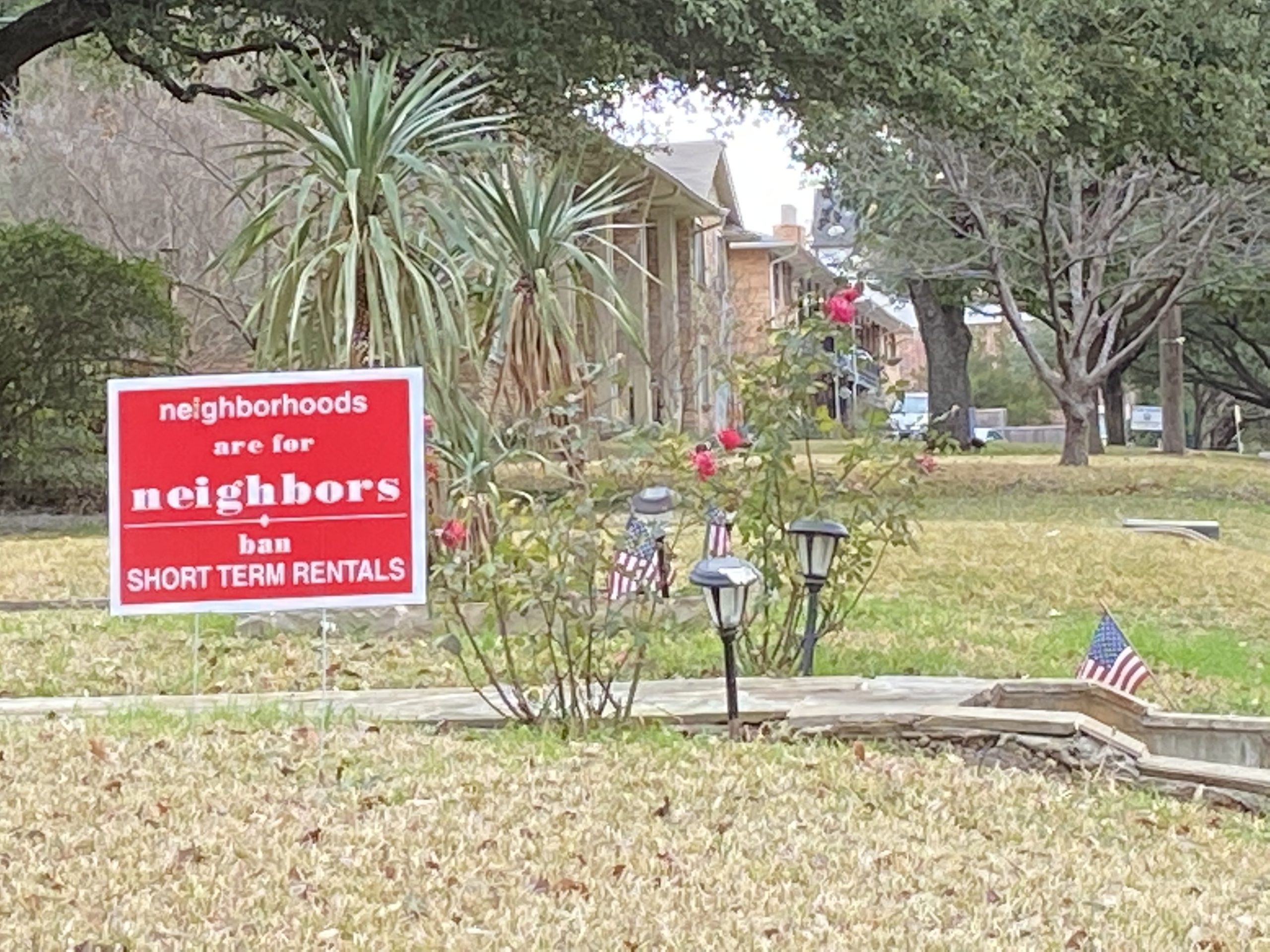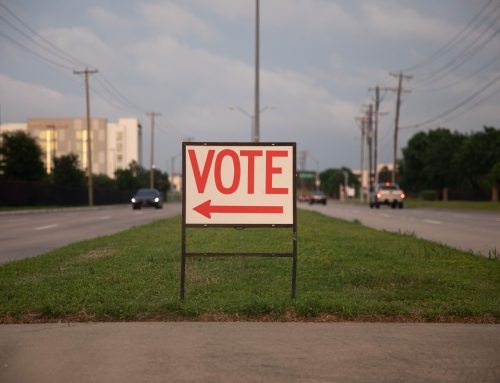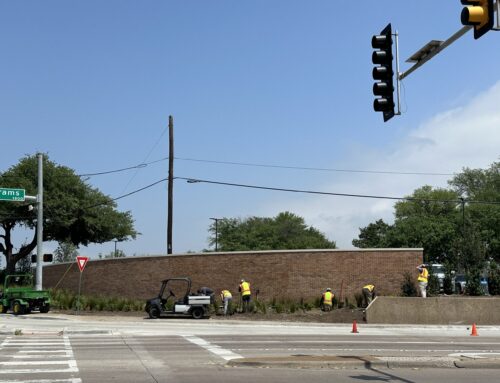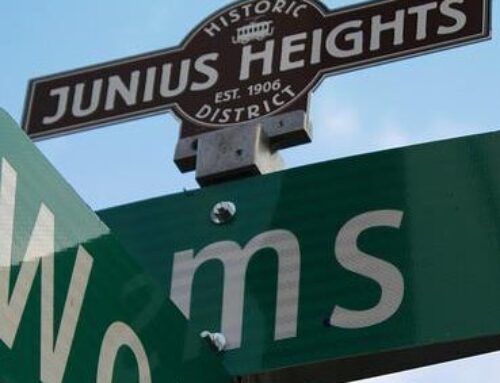
Photography by Jaime Dunaway-Seale
Lochwood neighbor Alison Hannah never would have sold her home if she’d known what the new owners had in store for the house on Midlake Drive.
Hannah felt uneasy when the buyers submitted an offer without ever having seen the property, but she thought, “It’s a real offer. They put up real earnest money. I’m hysterical and COVID is making me crazy.”
Hannah and her husband, Michael, sold the home anyway and moved to a rental house in the neighborhood while waiting out the pandemic before relocating to the Hill Country. Weeks after they closed, the new owners still had not moved in. Eventually, Hannah found the property listed on VRBO.
It wasn’t long before groups started arriving for parties. Cars parked in illegal spots, trash cans overflowed and loud noise blared into the night.
“One of my neighbors saw a woman walking down the street with nothing but a bedsheet on,” Hannah said. “The police were there three times in one night. My neighbors did not sign up to live next to a hotel or a disco tech. Before I move and leave the neighborhood, I’m going to do everything I can to help my neighbors.”
Similar short-term rentals are causing problems throughout Dallas, prompting city officials to address the issue. In February 2019, the City of Dallas started requiring short-term rentals to register and pay a hotel occupancy tax — but most don’t. As of Dec. 31, 2020, 736 short-term rentals had registered. An estimated 1,425 have yet to do so.
District 14 Councilman David Blewett and District 9 Councilwoman Paula Blackmon organized community meetings, formed their own district working groups and urged the creation of a task force to examine how the city can mitigate impacts to neighborhood life.
The task force formed in February 2020 and conducted six virtual meetings to discuss the problem. After researching short-term rental regulations in other cities, hearing presentations by Airbnb and VRBO representatives and analyzing data, the task force presented it recommendations Tuesday to the Quality of Life, Arts and Culture Committee.
The recommendations are:
- Short-term rentals should meet the same minimum standards as other rental properties. Those standards include setting occupancy limits, defining noise limits and prohibiting rentals for events like weddings.
- Focus on compliance by offering accessible online permitting, requiring registration before being listed on a platform and requiring owners to provide guests with neighborhood rules.
- Establish penalties for unlicensed rentals and those that do not apply. Establish a three-strikes program in which rentals cannot apply for a new permit for one year after three disturbances.
- Study the benefits and negative impacts of short-term rentals. That includes requiring rental owners to provide 24/7 contact information to neighbors and requiring hosts to respond within two hours of a complaint.
“I’m encouraged that we’ve made progress, and we’re moving forward, but I do not think it’s ready to bring to the full council,” Blewett said. “We need more input. We have some things to tighten up.”
However, regulating short-term rental properties remains difficult. In 2018, the city approved a contract with MUNIRevs to identify short-term rentals, but it’s challenging because websites like Airbnb and VRBO do not list exact addresses.
While the committee considers these measures, the task force has provided neighbors with a way to take immediate action. In October 2020, a new service request type titled “Short Term/Vacation Rental (STR) Survey” appeared on 311 to record complaints and potential violations. The task force suggested prioritizing efforts on properties causing a nuisance.
Data from 311 and 911 show most complaints were focused on less than 40 properties, said Assistant City Manager Joey Zapata, who presented the task force’s findings. The more complaints against a property, the more leverage the city has to get the property owner to comply.
“We know the problem houses,” Blewett said. “We just don’t want that number to double or triple. We want to get ahead of it.”
Some neighbors want to ban short-term rental properties in single-family zoned neighborhoods, but that approach could cause legal risks — as it has in other cities — and it was not supported by the task force. Understanding the legal boundaries is important to know before the next round of meetings with constituents, Blackmon said.
“More feedback and discussion on this is best,” Blackmon said. “I welcome everybody and appreciate everyone on the task force and those who have called and emailed me.” Email district9@dallascityhall.com to get involved.
After community meetings, the task force and committee will draft recommendations to present to the full city council. Blewett said he would like to have an ordinance in place soon, and Hannah agrees.
“Our neighbors are being robbed of their property values, their safety and security because someone else who doesn’t even live here saw a business opportunity,” Hannah said.





